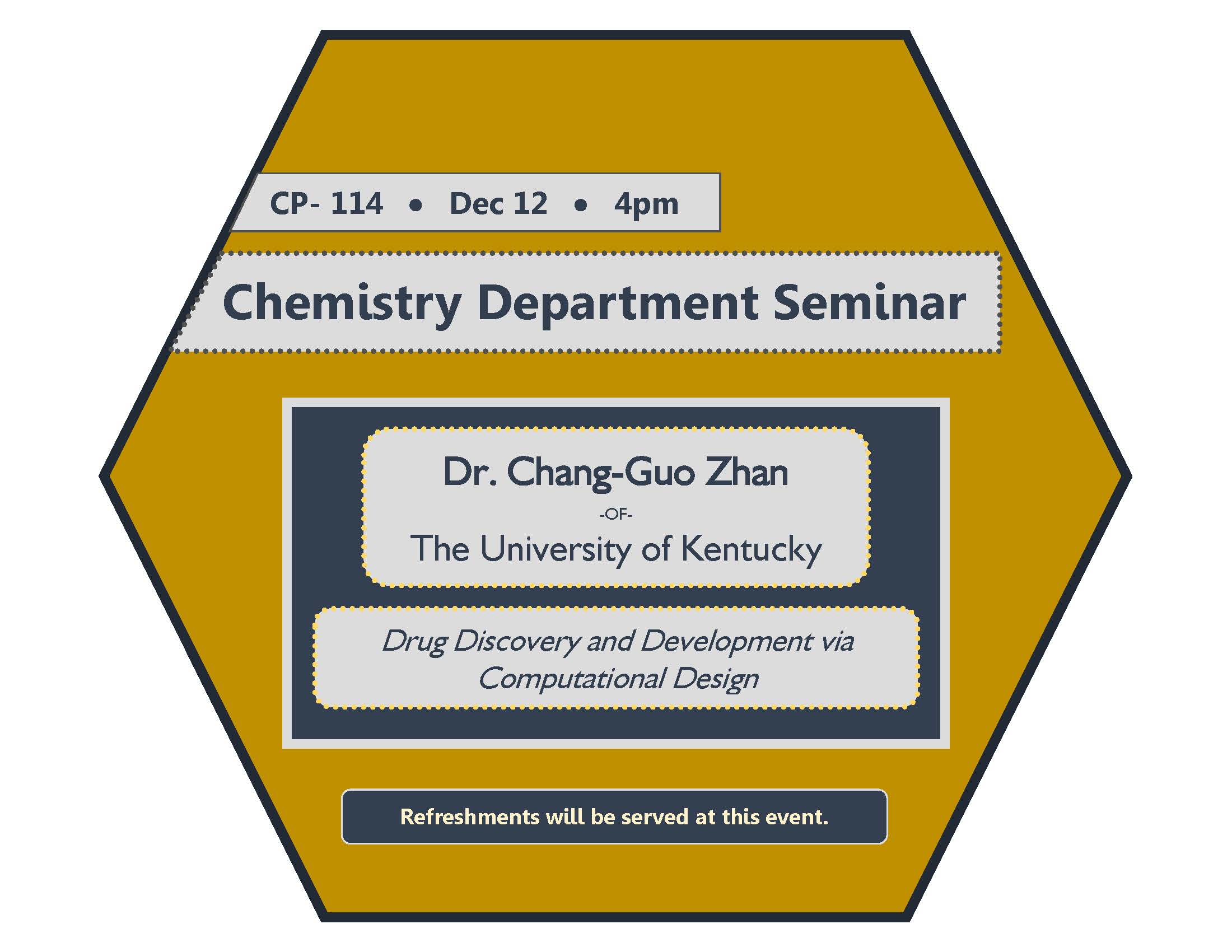Archer Addresses Social Theory Lecture
Professor Margaret Archer will give a free lecture Friday, Dec. 12, at 4 p.m.
Professor Margaret Archer will give a free lecture Friday, Dec. 12, at 4 p.m.
You could say they left the best for last, as master musician Don Pedi performs the final concert in the 2014 "Appalachia in the Bluegrass" concert series.
Title: My preferred proof of the Lefschetz fixed point theorem
Abstract: There are many different proofs of the Lefschetz fixed point theorem. The most familiar approach uses simplicial approximation and is often a first example of the power of simplicial homology. I'll talk about a very different proof that I find much more useful. This proof requires more input, but it generalizes easily.
----------
Dr. Chang-Guo Zhan will be presenting a seminar titled Drug Discovery and Development via Computational Design.
Faculty Host: Dr. Dong-Sheng Yang

Luke Glaser, a 2013 english and hispanic studies graduate from Louisville, Kentucky, and Grace Trimble, a political science senior, were recently named finalists for the Rhodes Scholarship.
A new book published by the University Press of Kentucky honors the legacy of prolific Kentucky writer, teacher, and scholar Jim Wayne Miller.
Paul Karan of the Geography department will be instructing a course on China's geography in the Spring semester. It isn't just about maps, as Karan explains in this podcast, but rather the different ways many major elements of human life can connect in one field of study. Karan also details how and why this course can be beneficial to anyone, even those outside of the Geography major.
Natural selection is most familiar with respect to Darwinian evolution. However, though some biologists will argue that selection acts only on genes, this is a very narrow and restricted view. Selection operates on a variety of environmental phenomena, and at a variety of scales. In hydrology and geomorphology, the principle of gradient selection dictates that the most efficient flow paths are preferred over less efficient ones, and that these paths tend to be reinforced. That’s why water flows organize themselves into channels (more efficient than diffuse flows), and channels into networks. The principle of resistance selection in geomorphology is simply that more resistant features will persist while less resistant ones will be removed more quickly. Thus geomorphic processes select for certain forms and features and against others. Among others, Gerald Nanson, Rowl Twidale, and Luna Leopold have written on selection in geomorphology, and Henry Lin, among others, in hydrology.

Principle of gradient selection at work--Board Camp Creek, Arkansas
Do you have a major in the College of Arts & Sciences? Do you want to get more involved on campus, work with a dynamic, energetic group of fellow A&S students, and talk to others about the College of Arts & Sciences student experience?
Then you should think about applying to be an Arts & Sciences Ambassador! Come to this information session to learn more about this great opportunity. For more information, go to this web site:
http://www.as.uky.edu/ambassador-program-application
This will count as a Wired Event!!